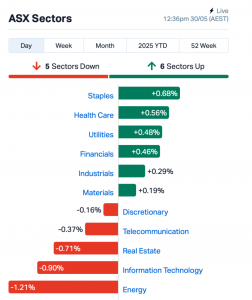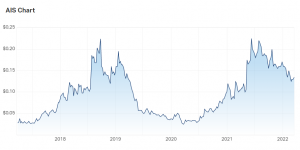
Prescient has started a Phase 2a trial of PTX 100. Pic via Getty Images.
- First patient dosed in Prescient’s Phase 2a trial of PTX 100 in patients with relapsed or refractory cutaneous T-cell lymphoma
- Dosing marks a key milestone in development of PTX-100 as a potential treatment for the rare cancer
- Phase 2a trial is targeting recruitment up to 40 patients across multiple sites in Australia, the US and Europe
Special Report: The first patient has been dosed in Prescient Therapeutics Phase 2a clinical trial of PTX-100 in patients with relapsed or refractory cutaneous T-cell lymphoma (CTCL).
Prescient Therapeutics (ASX:PTX), a clinical-stage oncology company developing personalised therapies for cancer, said the Phase 2a study would evaluate two dosage levels of PTX-100 in an open-label design.
The trial will see up to 40 patients with relapsed or refractory CTCL enrolled across multiple sites in Australia, the US and Europe.
CTCL is a rare type of cancer of white blood cells (T-cells), normally involved in immune function.
Cancerous T cells travel to, and live in, the skin where they grow, divide and attack uncontrollably.
There are currently limited options for patients with relapsed or refractory CTCL.
The Phase 2a trials’s primary endpoint is efficacy, with safety among the secondary endpoints.
Key milestone in advancing PTX-100
Dosing of the first patient in the Phase 2a study is a key milestone for Prescient, representing significant progress in advancing PTX-100 as a potential new treatment for patients with CTCL.
Prescient said PTX-100 was a first-in-class compound with the ability to block an important cancer growth enzyme known as geranylgeranyl transferase-1 (GGT-1).
The company said PTX-100 blocks key signals that cancer cells use to grow and survive.
Specifically, it targets the oncogenic Ras pathway and blocks the activity of Rho, Rac, and Ral circuits – ultimately causing cancer cells to die, a process known as apoptosis.
PTX-100 is believed to be the only GGT-1 inhibitor in the world in clinical development.
The compound has demonstrated safety and early clinical activity in a previous Phase 1 study and recent PK/PD basket study of haematological and solid malignancies.
In a recently completed Phase 1b expansion cohort study in T-cell lymphomas Prescient reported PTX-100 showed encouraging efficacy and safety.
The US Food and Drug Administration (FDA) has granted PTX-100 orphan drug designation for all T-cell lymphomas and fast-track designation for treatment of adults with relapsed or refractory mycosis fungoides, the most common subtype of CTCL.
“The first patient in Prescient’s Phase 2a study has been dosed at the Linear Clinical Research site in Perth, under the care of Dr Dejan Radeski, a consultant haematologist with a special interest in T-cell lymphoma,” chief medical officer Dr Marissa Lim said.
“This marks an important step in our mission to advance additional treatment options for CTCL.”
This article was developed in collaboration with Prescient Therapeutics, a Stockhead advertiser at the time of publishing.
This article does not constitute financial product advice. You should consider obtaining independent advice before making any financial decisions.



